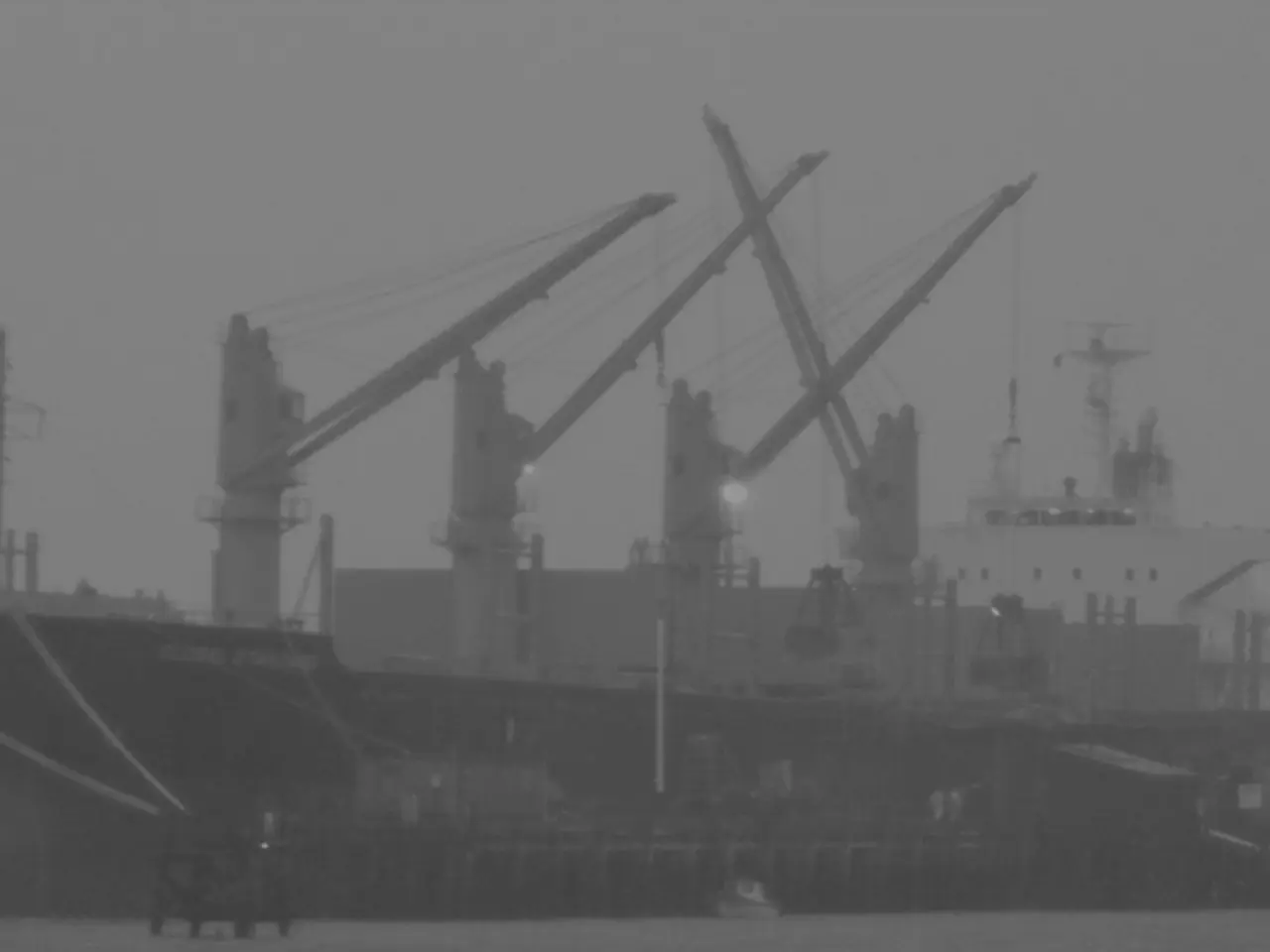Increased global initiatives and regulations are being implemented to tackle marine pollution caused by oil and ship waste.
The International Convention for the Prevention of Pollution from Ships (MARPOL) is a crucial international treaty aimed at minimizing pollution from ships into the marine environment. Adopted in 1978 and coming into force in 1983, MARPOL has been updated through a 1997 protocol effective from 2005.
MARPOL addresses pollution by oil, harmful substances, garbage, sewage, and air emissions through its six technical annexes. Here's a breakdown of the key regulations and recent updates across these annexes:
- MARPOL Annex I — Oil Pollution: Regulates the prevention of pollution by oil and oily water from operational measures and accidental discharges. It imposes strict limits on oil discharge and requires oil filtering equipment on ships.
- MARPOL Annex II — Noxious Liquid Substances: Controls the discharge of harmful liquid substances carried in bulk, specifying discharge criteria and safety measures for handling such substances on board.
- MARPOL Annex III — Harmful Substances in Packaged Form: Covers pollution by harmful substances carried in packaged form, including packaging, labeling, documentation, and handling requirements to prevent leakages or spills during transport.
- MARPOL Annex IV — Sewage: Specifies requirements for sewage discharge from ships, including treatment and discharge restrictions to prevent eutrophication and water quality degradation.
- MARPOL Annex V — Garbage: Prohibits the discharge of plastic and restricts the discharge of other types of garbage into the sea except under specific conditions. This annex has been significantly amended to tighten controls and promote shipboard waste management technologies.
- MARPOL Annex VI — Air Pollution: Regulates air emissions from ships, including sulfur oxides (SOx), nitrogen oxides (NOx), ozone-depleting substances, and particulate matter. It includes requirements for fuel quality, emission control areas (ECAs), and energy efficiency. Recent amendments include:
- Entry into force of new amendments on August 1, 2025, and October 1, 2025, targeting further reduction of air emissions.
- Introduction of future emission control areas starting March 1, 2026, aiming for stricter regional controls on NOx and SOx emissions.
- Updates on ammonia use as a marine fuel in the IGC Code from July 1, 2026.
- Implementation of the NOx Technical Code by September 1, 2026.
Recent key legislative updates include amendments to MARPOL Annex VI focusing on reduction of air pollutant emissions, aligned with the International Maritime Organization's (IMO) greenhouse gas (GHG) reduction strategy. Other updates involve enhanced requirements for electronic record-keeping and data collection for compliance monitoring, stricter discharge criteria and port state control measures to ensure compliance, and updates in safety standards and guidelines for handling alternative fuels (e.g., ammonia) and emerging technologies onboard ships for pollution control.
These changes are part of the IMO’s continuous efforts to address marine pollution from multiple fronts like oil spills, harmful substances, waste management, sewage control, and air quality, reflecting environmental priorities and advancing maritime sustainability. For detailed and official texts, the IMO circulars and resolutions provide comprehensive descriptions and guidelines on MARPOL amendments and enforcement.
- The International Convention for the Prevention of Pollution from Ships (MARPOL) is a significant treaty in science, addressing global climate-change concerns related to the marine environment.
- In the industry sector, MARPOL Annex I regulates the prevention of oil and oily water pollution from ships, requiring oil filtering equipment to minimize discharges.
- MARPOL Annex VI focuses on energy efficiency and sustainable-living, aiming to reduce air pollutant emissions and advance the use of cleaner fuels like ammonia.
- Data-and-cloud-computing plays a crucial role in MARPOL's efforts, as new requirements for electronic record-keeping and data collection support compliance monitoring.
- Public-transit and transportation are concerned about the updates on stricter port state control measures to ensure compliance with MARPOL regulations.
- For environmental-science students, MARPOL represents a key topic in education-and-self-development and career-development, offering insights into policy-and-legislation related to climate-change and sustainable-living.
- In the field of personal-growth, citizens can educate themselves on general-news and crime-and-justice involving the IMO's efforts to enforce MARPOL regulations and combat marine pollution.
- Lifestyle choices related to home-and-garden can support MARPOL's mission by using eco-friendly products and practices to reduce household waste that might end up in the sea.
- Policies and legislation focusing on the maritime sector should consider MARPOL's updates and amendments to promote cleaner energy solutions and minimize pollution from ships.
- Technology plays a pivotal role in implementing and enforcing MARPOL, as advancements in pollution control help ensure a sustainable future for the marine environment and the industry.





